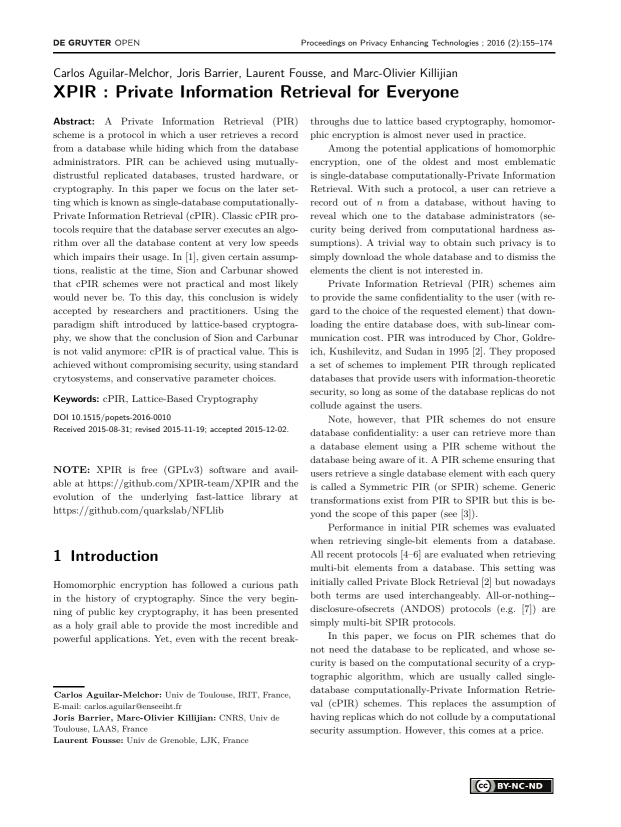XPIR : Private Information Retrieval for Everyone
Authors: Carlos Aguilar-Melchor (Univ de Toulouse, IRIT, France), Joris Barrier (CNRS, Univ de Toulouse, LAAS, France), Laurent Fousse (Univ de Grenoble, LJK, France), Marc-Olivier Killijian (CNRS, Univ de Toulouse, LAAS, France)
Volume: 2016
Issue: 2
Pages: 155–174
DOI: https://doi.org/10.1515/popets-2016-0010
Abstract: A Private Information Retrieval (PIR) scheme is a protocol in which a user retrieves a record from a database while hiding which from the database administrators. PIR can be achieved using mutuallydistrustful replicated databases, trusted hardware, or cryptography. In this paper we focus on the later setting which is known as single-database computationallyPrivate Information Retrieval (cPIR). Classic cPIR protocols require that the database server executes an algorithm over all the database content at very low speeds which impairs their usage. In [1], given certain assumptions, realistic at the time, Sion and Carbunar showed that cPIR schemes were not practical and most likely would never be. To this day, this conclusion is widely accepted by researchers and practitioners. Using the paradigm shift introduced by lattice-based cryptography, we show that the conclusion of Sion and Carbunar is not valid anymore: cPIR is of practical value. This is achieved without compromising security, using standard crytosystems, and conservative parameter choices.
Keywords: cPIR, Lattice-Based Cryptography
Copyright in PoPETs articles are held by their authors. This article is published under a Creative Commons Attribution-NonCommercial-NoDerivs 3.0 license.

